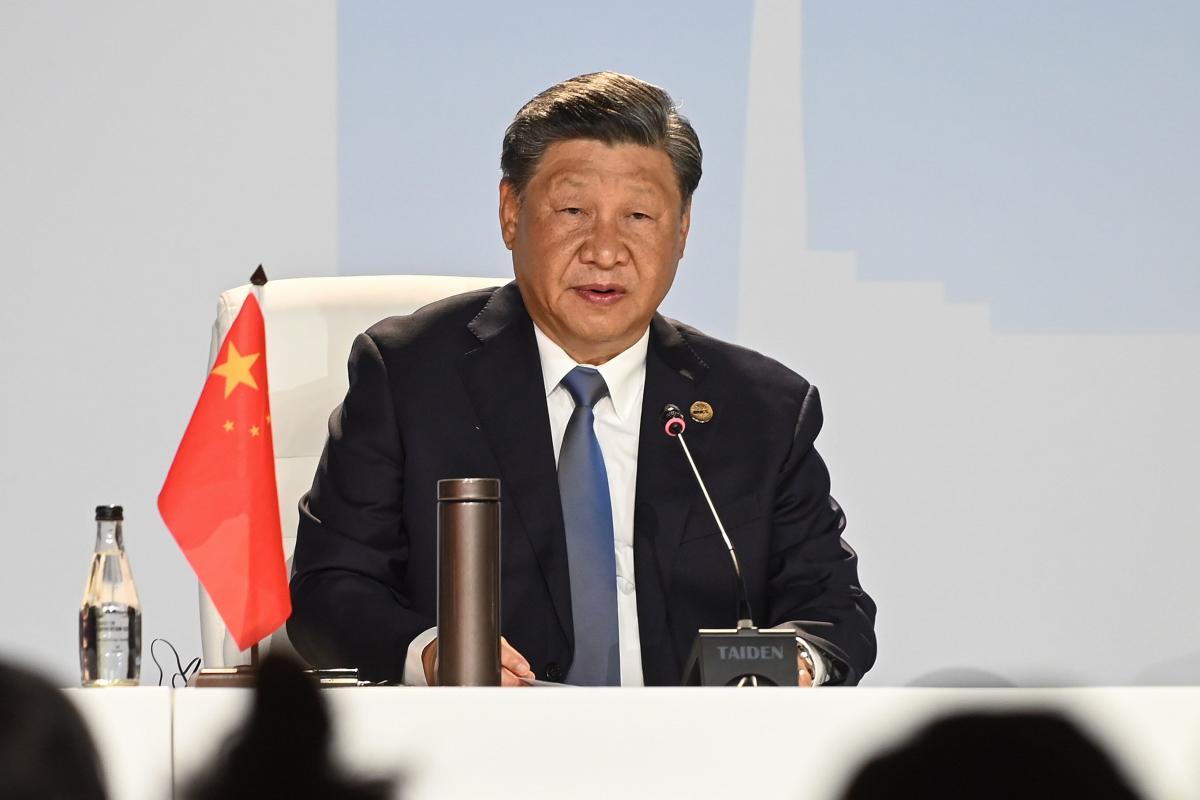Chinese President Xi Jinping and former Brazilian President Luiz Inácio Lula da Silva emphasized the need for the Global South to have more influence, as they attended a summit with other BRICS leaders to discuss boosting their presence on the world stage and possibly introducing a common unit of currency.
Chinese President Xi Jinping has urged the BRICS bloc of emerging markets to expedite its plan to expand its membership, aiming to increase the group's influence on the global stage, with about 20 countries including Saudi Arabia, Indonesia, and Egypt expressing interest in joining the group.
Indian Prime Minister Narendra Modi's exchange with Chinese President Xi Jinping at the BRICS summit in South Africa suggests a potential thawing of the financial relationship between the two countries, with India showing interest in a larger Chinese presence in its businesses and a softening of its screening policy for investments.
Chinese Premier Li Qiang is expected to represent China at the G20 Summit in India next week, as President Xi Jinping will not attend the summit.
Chinese President Xi Jinping is unlikely to attend the G-20 Summit in Delhi, according to reports, but US President Joe Biden expressed disappointment and stated that he will still have an opportunity to meet with Xi Jinping in November during the APEC conference in San Francisco.
The absence of President Xi Jinping from the G20 summit and the expansion of the Brics bloc highlight the declining interest of non-Western powers in Western-led institutions, signaling a shift towards alternative economic and financial arrangements.
China's top security agency suggests that a meeting between President Xi Jinping and President Joe Biden in San Francisco will depend on the United States demonstrating enough sincerity in their actions towards China.
China's President Xi Jinping is shifting away from the aggressive "wolf warrior" diplomacy and positioning China as a global peacemaker, seeking alliances with the West and Asia, possibly due to economic challenges and a desire to establish more partnerships internationally.
Senior members of the Chinese Communist Party have criticized Xi Jinping for his alleged mismanagement of the economy, marking a rare reprimand for the Chinese leader who has decided not to attend the G20 summit in India this year and has expressed frustration to his aides, blaming past presidents for the current issues in the country.
President Joe Biden is traveling to the G-20 summit in New Delhi and then to Vietnam to strengthen ties with developing countries and counter China's influence, while also facing challenges from autocratic leaders attending the event.
President Joe Biden will attend the Group of 20 (G20) summit in India as a supporter, even as the US acknowledges that India's interests may diverge from Washington's, with India seeking to emphasize development issues and bridge the concerns of the world's largest economies with those of the Global South.
President Xi Jinping's absence from the G20 summit in New Delhi has left only China to explain the reason, according to a US official, casting doubt on China's commitment to the success of the bloc.
China's Xi Jinping and Russia's Vladimir Putin will be absent from the G20 summit, highlighting changing dynamics as leaders focus on domestic issues and pursue alternative multinational organizations, while President Joe Biden sees the event as an opportunity to engage with allies and advocate for U.S. leadership.
U.S. President Joe Biden held high-level talks with Chinese Premier Li Qiang at the G20 summit in India, discussing stability and downplaying the possibility of China invading Taiwan, while also addressing China's economic challenges and their impact on the global economy.
The G20 Summit hosted by India was regarded as a success for the Modi government, and US President Joe Biden emphasized the importance of human rights and the role of civil society and a free press in his discussions with Prime Minister Narendra Modi. Biden also expressed the desire for a stable relationship with China and praised Modi's leadership and hospitality.
The disappearance of China's defense minister, Li Shangfu, and other political upheavals are causing uncertainty about President Xi Jinping's rule and could impact other countries' confidence in China's leadership.
Chinese President Xi Jinping faces numerous challenges, including economic troubles, natural disasters, community dissent, and international conflicts, as he continues to centralize power, leading to signs of dissatisfaction and potential issues ahead.
Chinese President Xi Jinping's visit to Yiwu, a major manufacturing hub, is seen as a symbolic gesture to boost economic confidence and promote development, as China's economy slows down and Beijing aims to support the private sector.
China is willing to strengthen bilateral relations with India and implement the consensus reached by Narendra Modi and Xi Jinping, according to the Consul General of China in Kolkata, Zha Liyou, amid controversy over China's refusal to grant visas to three players from Arunachal Pradesh for the Asian Games.
China's President Xi Jinping may not meet with US President Joe Biden later this year due to domestic issues and concerns of potential embarrassment, although recent interactions between Chinese and US officials have raised hopes for a future meeting.
